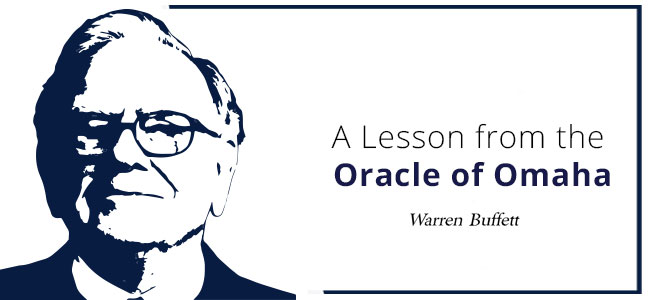
What’s The Biggest Lesson You Can Learn from Warren Buffett?
“My wealth has come from a combination of living in America, some lucky genes, and compound interest" (Warren Buffett)
Warren Buffett is widely regarded as one of the greatest investors alive today. His record of successful investment decisions made him, for some time, the world’s richest man.
His net wealth is currently estimated to be $100 billion, or R1.4 trillion.
A lot has been written about how Buffett made so much money. An internet search will throw up hundreds of articles about his investment approach, his strategies and his careful analysis.
But as financial writer Morgan Housel pointed out at the Allan Gray Investment Summit last month, perhaps the most important factor in his success is often overlooked.
The one critical factor
‘Ninety-nine percent of Warren Buffett’s net worth was accumulated after his 55th birthday,’ said Housel. ‘Ninety-seven percent after his 65th birthday.’
In fact, Buffett has doubled his wealth since 2006, according to Forbes. This is even though, during this time, he has given away half of the shares he owns in his company Berkshire Hathaway. That is stock worth $41 billion (R600 billion).
As Housel noted, this points to one critical factor:
‘In the industry, we spend so much time trying to answer how Warren Buffett became so wealthy and successful,’ Housel said. ‘We talk about business models, moats and market cycles. But 99% of his net worth is tied to the amount of time he has been investing for.
‘If Warren Buffett had retired at age 60, you would never have heard of him. There wouldn’t be books written about him. His real secret is that he’s been a good investor for 80 years. That is literally the secret to 99% of his success. But it’s not intuitive that you can explain something like this just by compounding.’
The compounding effect
Buffett only became a billionaire at the age of 55. An awful lot of good investment decisions got him there.
He has also continued to make good investment decisions since then. But the real power behind his wealth creation is that the returns from the investment decisions he made in his 30s and 40s have now been compounding for 50 or 60 years.
Many investors not only underestimate the power of this compounding effect, but also the necessary amount of time you need to stay invested to get the odds in their favour when investing in the stock market.
Time in the market
According to the Old Mutual Long Term Perspectives publication, if you look at returns from the FTSE/JSE All Share Index going back to 1960, on any given day the chance of a negative return is 45%. Essentially, it is a coin toss.
Even just extending that period to one year, however, reduces the chance of a negative return to 21%. They could, however, be deeply negative. In its worst years, the All Share Index has dropped over 40%.
Over any 10-year period, however, the All Share Index has never been negative. Just staying invested that long means that you would have never lost money.
The real long term
It can be very difficult to think in such long time frames. In today’s world, there is so much news and information coming at us all the time that even a year can feel like an awfully long time.
But wealth creation is not a one year, five year, or even 10 year exercise. Long term investing is about 20 years, or 30 years. It is about giving your returns the chance to compound. When that happens over these truly long periods of time the results are remarkable.
Consider that, over the past 91 years, the annualised return on the JSE has been 13.6%. That means that just R10 invested in 1930 would be worth R1.9 million today.
That is the power of compounding, and the biggest lesson any investor can learn from Warren Buffett.
Provided by Vaal Triangle Insurance
© DotNews. All Rights Reserved.
